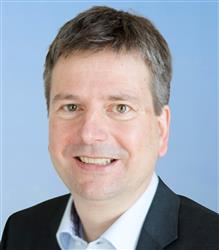ProjektM/EDGE – Secure Low Power Medical Edge Computing
Grunddaten
Akronym:
M/EDGE
Titel:
Secure Low Power Medical Edge Computing
Laufzeit:
01.11.2022 bis 31.10.2025
Abstract / Kurz- beschreibung:
Moderne Medizinprodukte haben mit ihrer engen Integration von programmierbarer Mikroelektronik, Sensorik und Aktuatorik grundlegend neue diagnostische und therapeutische Möglichkeiten eröffnet. Die logische Weiterentwicklung zu Cloud-vernetzten cybermedizinischen Systemen bietet durch den Einsatz von KI-Verfahren revolutionäre Chancen für eine intelligente, schonende und zielgenaue Medizin. Für medizinische Implantate oder drahtlose Sensorik ist jedoch eine breitbandige und unterbrechungsfreie Netzwerkanbindung technisch und praktisch nicht realisierbar. Die Lösung für diese Herausforderungen ist die Integration von Intelligenz und Autonomie direkt im Medizinprodukt, d.h. medizinisches Edge-Computing. Mit dem Projekt M/EDGE soll eine Elektronik-Plattform für hochintegrierte medizinische Edge-Intelligenz entwickelt und für die Multisensor-Kapselendoskopie sowie für Neuroimplantate prototypisch realisiert werden. Für den Einsatz von maschinellen Lernverfahren in derartigen cyber-medizinischen Edge-Devices besteht ein hoher Bedarf an hoch-performanten, eingebetteten Hardwarearchitekturen, die in der Lage sind, maschinelle Lernverfahren für die intelligente Sensordatenauswertung energieeffizient auszuführen ohne anwendungsspezifische Anforderungen hinsichtlich Latenz und elektrischer Leistungsaufnahme zu verletzen. Wichtige Voraussetzung für dieses Ziel ist die Bereitstellung von intelligenten Edge-Komponenten, die maßgeschneidert in ihre Umgebung eingebettet werden können und mit dieser selbstständig interagieren. Hierfür sind applikationsspezifischer Rechenbeschleuniger für maschinelle Lernverfahren notwendig, die flexibel an die spezifischen Anforderungen der medizinischen Anwendungen zur Analyse und Klassifikation von Sensordatenströmen angepasst werden kann. Dabei sollen die maschinellen Lernverfahren in einem automatisierten HW/SW-Codesign gemeinsam mit den Hardwarebeschleunigern entwickelt und optimiert werden, um den Leistungsanforderungen gerecht werden zu können. Dies ermöglicht eine effiziente Prozessierung von Sensordatenströmen mit einer durchschnittlichen elektrischen Leistungsaufnahme deutlich kleiner als 1 mW.
Beteiligte Mitarbeiter/innen
Leiter/innen
Mathematisch-Naturwissenschaftliche Fakultät
Universität Tübingen
Universität Tübingen
Wilhelm-Schickard-Institut für Informatik (WSI)
Fachbereich Informatik, Mathematisch-Naturwissenschaftliche Fakultät
Fachbereich Informatik, Mathematisch-Naturwissenschaftliche Fakultät
Lokale Einrichtungen
Fachbereich Informatik
Mathematisch-Naturwissenschaftliche Fakultät
Universität Tübingen
Universität Tübingen
Geldgeber
Bonn, Nordrhein-Westfalen, Deutschland


